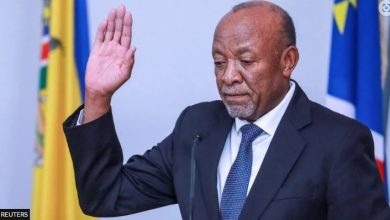Tanzania on high alert over Ebola, sticks to traditional anti-Covid measures

Tanzania has announced that it is on high alert following an Ebola outbreak in the Democratic Republic of Congo.
According to Kigoma Regional medical officer Dr Simon Chacha, the country has strengthened testing around the borders and at its ports of entry.
This latest outbreak has surfaced in the eastern province of Kivu, and so far a second person has died.
Kigoma region in western Tanzania shares a border with Burundi and the DRC on the other side of Lake Tanganyika.
Dr Chacha said the government is educating the public on Ebola symptoms through mass media, use of flyers, advertisements and community-based health workers.
“We have strengthened co-operation of the nearby districts by conducting cross border surveillance with citizens to provide information on suspected Ebola symptoms,” said Dr Chacha.
The new outbreak in DRC has come just three months after authorities declared the end of its 11th outbreak, which infected 130 people and killed 55.
The Kigoma region has a population of 2, 616,200 (census 2018 projections) with an estimated growth rate of 2.4 percent annually. The region currently hosts a large number of Burundian and Congolese refugees in three refugee camps situated in Kasulu, Kibondo, and Kakonko districts.
According to WHO symptoms of EVD (Ebola Virus Disease) can be sudden and include, fever, fatigue, muscle, pain, headache, and sore throat, and this is followed by vomiting, diarrhoea, rash, symptoms of impaired kidney and liver function, and in some cases internal and external bleeding for example oozing from the gums, blood in the stools.
Travel advisory
Meanwhile, as the coronavirus pandemic rages on around the world with new variants emerging in South Africa, the United Kingdom and the US, Japan’s Foreign ministry issued a warning on February 9 that the country was considering suspending or postponing travel to Tanzania due to the rapidly worsening coronavirus infection situation.
“In June (2020), the president declared that ‘God has saved Tanzania from the coronavirus,’ making it difficult to officially acknowledge the existence of the virus or cases of infection,” reads the statement released by Japan Foreign Ministry.
The Unites States embassy in Tanzania on the other hand said Covid-19 cases had surged since January.
“The US Embassy is aware of a significant increase in the number of Covid-19 cases since January 2021. Healthcare facilities in Tanzania can become quickly overwhelmed in a healthcare crisis. Limited hospital capacity throughout Tanzania could result in life-threatening delays for emergency medical care,” the embassy said in a statement.
Tanzania has not released aggregate numbers on Covid-19 cases or deaths since April 2020.
Government spokesperson Dr Hassan Abbasi said the country’s priorities are on prevention and treatment and not data.
“We are not saying Tanzania is coronavirus-free, because as a country it is part of the global family and we receive visitors from other country, our people also travel elsewhere where Covid-19 is still present,” Dr Abbasi said in a recent interview.
He added that Tanzania is not a coronavirus-free country instead the country has managed to control the virus, adding that the country might import the vaccine after it has proven its safety.
“We are not rejecting the vaccine but we are using our traditional herbal remedies until we are satisfied the vaccine is safe for our citizens,” he said.





